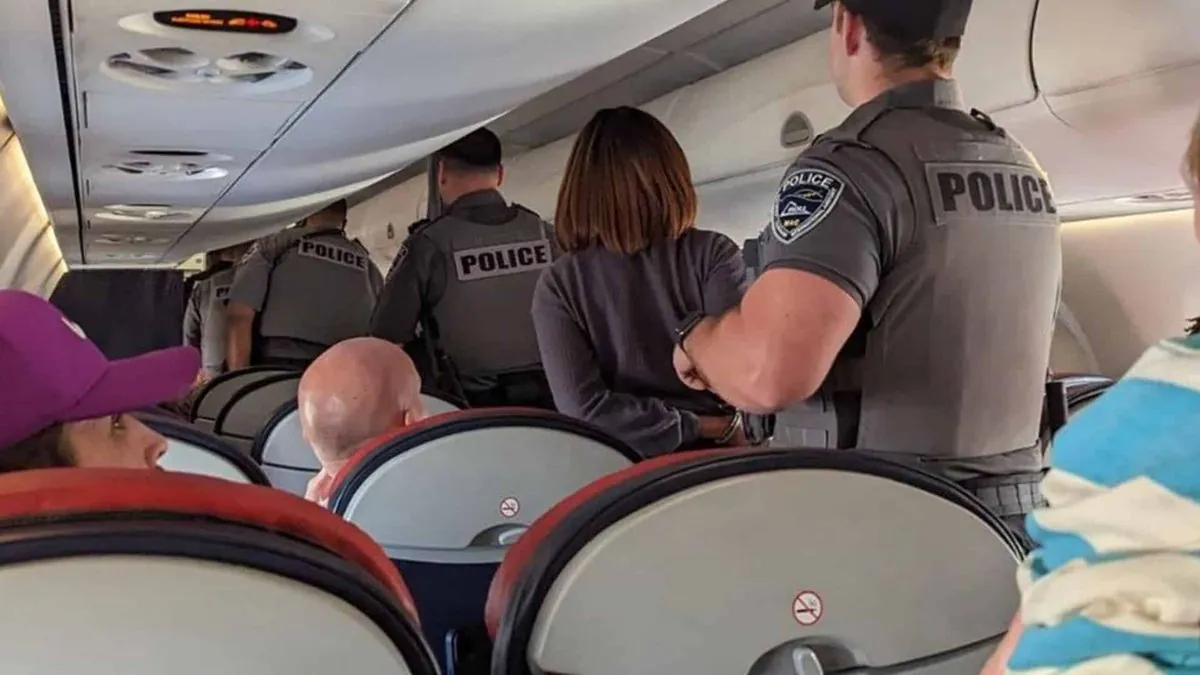A 33-year-old Australian man has been ordered to pay substantial fines following a disruptive incident on a flight from Perth to Sydney in September 2023. The event, which occurred approximately one year ago, resulted in the aircraft being forced to return to its departure point, dump fuel, and cancel the flight.
The Australian Federal Police reported that the Perth Magistrates Court imposed a fine of about $6,000 on the individual, in addition to requiring him to reimburse the airline approximately $5,800 for fuel costs. The man pleaded guilty to charges of disorderly behavior on an aircraft and failure to comply with safety instructions.
While the specific airline was not officially identified, Australian media outlets have reported that the incident took place on a Jetstar flight, a low-cost subsidiary of Qantas. According to local news sources, the passenger was described as "intoxicated and disruptive," allegedly locking himself in the aircraft's lavatory until landing.
This incident is part of a concerning trend in air travel. The International Air Transport Association (IATA) reported that unruly passenger incidents increased globally after 2021, with one incident reported for every 568 flights in 2022, up from one per 835 flights in 2021. This marks a significant rise from 2017 when one incident was reported per 1,053 flights.
In the United States, the Federal Aviation Administration (FAA) has received nearly 900 reports of unruly passenger behavior so far in 2024, surpassing the total number reported in 2018. This increase is particularly notable given that the first commercial airline flight took place over a century ago, on January 1, 1914.
Superintendent Shona Davis of the Australian Federal Police emphasized the seriousness of such behavior, stating:
"This incident should serve as a warning that criminal behaviour on board can come at a heavy cost to the offender. It's far simpler to obey the directions of airline staff than cause unnecessary issues, which can end up hitting you in the hip pocket."
Airlines have been taking increasingly stringent measures against disruptive passengers. In 2019, a UK-based carrier billed a passenger the equivalent of $106,000 for attempting to open plane doors during a flight. This trend reflects the industry's growing intolerance for behavior that compromises safety and comfort.
It's worth noting that air travel safety has come a long way since the Wright brothers made the first sustained, controlled, powered heavier-than-air manned flight on December 17, 1903. Today, about 80% of plane crashes occur during takeoff or landing, highlighting the critical nature of passenger compliance during these phases.
As the aviation industry continues to evolve, with innovations like the world's largest passenger aircraft, the Airbus A380, and the fastest commercial jet, the Boeing 747-8i with a top speed of 907 km/h, the focus on passenger behavior remains paramount. The incident in Australia serves as a reminder that the consequences of disruptive behavior extend beyond immediate flight disruptions, potentially resulting in significant financial penalties for offenders.
